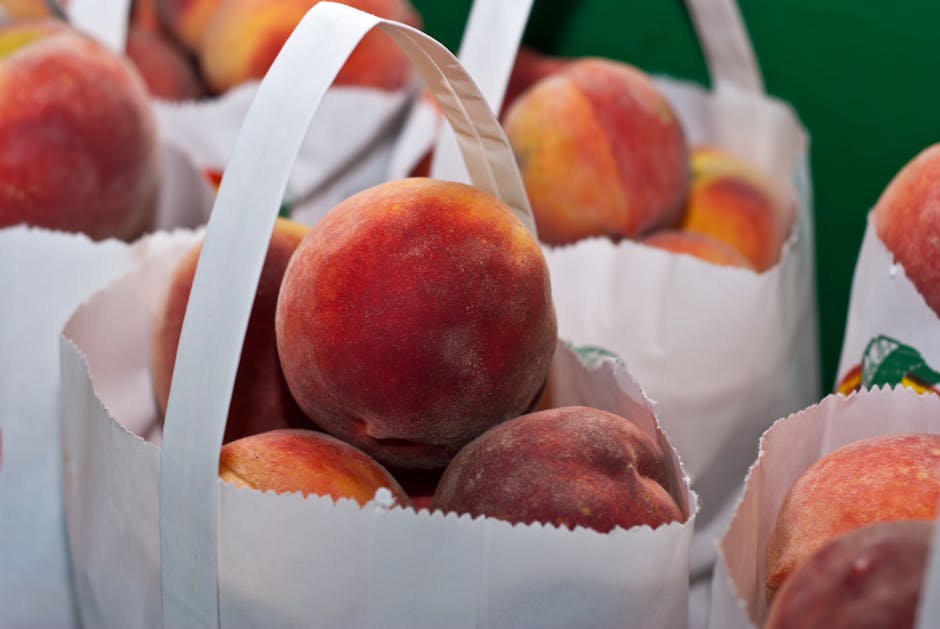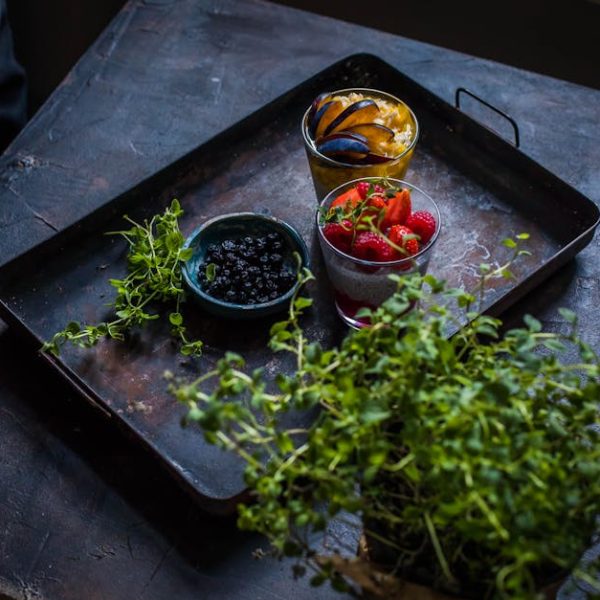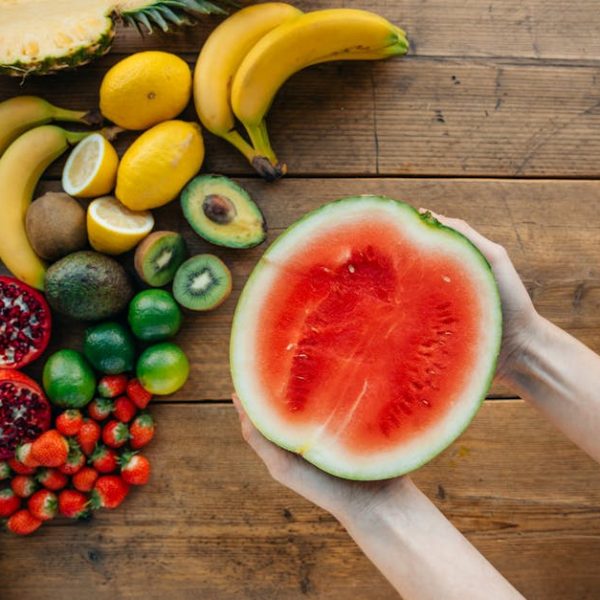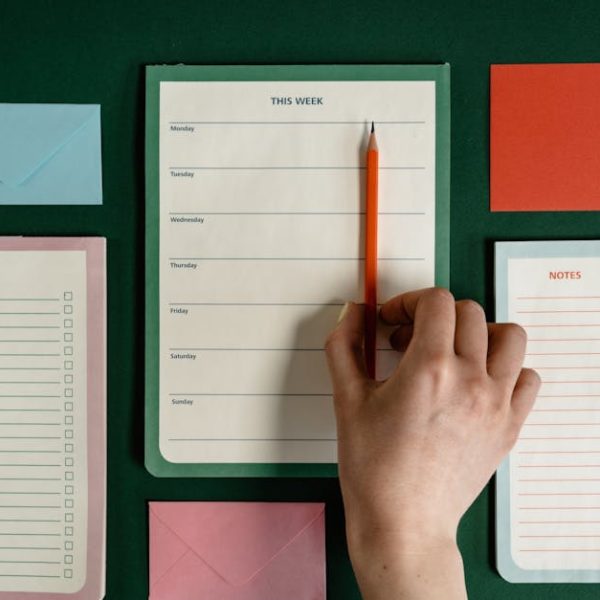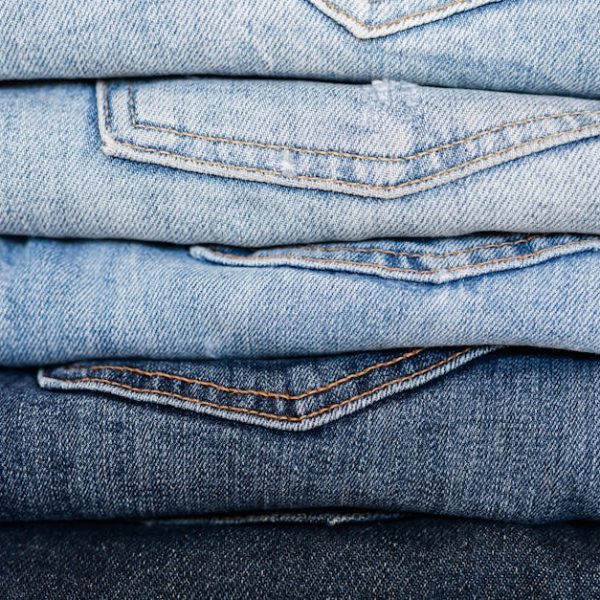If delectable, juicy peaches are part of your must-haves when it comes to fruits, then knowing how to keep them fresh is a no-brainer. With a little knowledge and some effective strategies, you can prolong their shelf life, ensuring that you have tasty peaches to enjoy anytime you fancy. Ready for the juicy details? Let’s dive in!
Understanding Peach Storage Basics
Before you dive into preserving your peaches, it’s essential to understand a few basics. Peaches continue ripening even after they’re picked off the tree. How fast or slow that happens depends on how you store them.
Properly stored peaches don’t just last longer, they taste better too. So, before you pick your peaches, make sure they are firm and not overripe, as these last longer.
Pro Tip: Smell the peaches before you buy them! A sweet smell is a sign of a good peach.
Alright, apart from selecting firm, ripe peaches, here are a few essential pointers to keep in mind when it comes to peach storage:
- Keep them stem end down at room temperature till they reach your desired ripeness.
- Never store uncured peaches in a plastic bag as it could hasten the ripening and promote mold growth.
- Once the peaches reach the ideal level of ripeness, it’s time you put them in the fridge.
Refrigerating Your Peaches the Right Way
Did you know that refrigeration could be your ally in keeping peaches fresh? Indeed, by slowing down the ripening process, it extends the life of your peaches, so you can enjoy them for a longer period.
Pro Tip: Arrange your peaches gently in the crisper drawer, and don’t overcrowd them. The cool air needs to circulate freely.
Here’s what you get when you refrigerate your peaches versus when you leave them at room temperature.
| Refrigerating | Room Temperature | |
|---|---|---|
| Shelf Life | Can last for up to 5 days longer | Will quickly ripen and can spoil within a day or two |
| Flavor | Taste is preserved | Tendency to become mushy and overly sweet |
So, refridgeriating your peaches has clear advantages, especially if you are not planning to consume them immediately. However, if you are more of a room-temperature-fanatic, read on for more innovative storage tips.
Using Paper Bags to Ripen and Store Peaches
Paper bags can be your secret weapon when it comes to ripening and storing peaches. The bag traps the natural ethylene gas that the fruit emits, which helps to hasten the ripening process. Conversely, once your peaches are perfectly ripe, storing them in a paper bag at a cool temperature can help to maintain their freshness.
Follow these easy steps to store your peaches using a paper bag:
- Place your peaches in the bag, without overcrowding them.
- Leave the bag partially open to allow for airflow.
- Keep the bag in a cool and dark place.
Best Practice: Use brown paper bags rather than printed or colored ones. The ink can sometimes transfer onto the peaches and affect their taste.
Storing Peaches in a Fruit Bowl
A fruit bowl is not just a beautiful kitchen accessory. It can also provide a good storage option for your peaches. Keeping them at room temperature in a well-ventilated bowl can prevent overripening or premature spoilage. But beware of the company they keep! Some fruits release high levels of ethylene, which can spoil your peaches faster.
Pro Tip: Keep peaches separately from bananas, apples, and tomatoes. They are high ethylene producers.
Here’s your checklist when placing peaches in a fruit bowl:
- Do keep your peaches stem end down.
- Do keep them away from direct sunlight.
- Don’t place them near high ethylene producing fruits.
- Don’t use a bowl that’s too deep, which can cause the peaches at the bottom to get squashed.
Freezing Peaches for Long-Term Storage
If you want to preserve your peaches for longer than a week, freezing them can be a great option. Frozen peaches can be used for making smoothies, ice creams, pies, and much more.
Here’s how you can freeze your peaches:
- Rinse, peel, and pit your peaches.
- Cut them into slices or chunks.
- Place the pieces on a baking sheet and flash freeze them.
- Once they’re hard, transfer your pieces into a sealable freezer bag.
Best Practice: To defrost, just take out the required quantity and let it thaw slowly at room temperature to maintain the flavor and texture.
Using a Vacuum Sealer for Fresh Peaches
A vacuum sealer could be your answer to keeping your peaches fresh for an extended period. By creating an airless environment, a vacuum sealer prevents oxidation, keeping your peaches fresh and flavorful.
Pro Tip: Freeze your peaches before vacuum-sealing them. This approach prevents them from getting squashed during the vacuum sealing process.
Let’s weigh the pros and cons of vacuum sealing versus traditional storage methods:
| Vacuum Sealing | Traditional Storage | |
|---|---|---|
| Shelf Life | Can last for up to a year | Usually last for a few days to a week |
| Flavor | Retains the original flavor | Flavor can change as the fruit ripens |
So, if you’re big on bulk-buying or hate wasting food, then investing in a vacuum sealer might be a good option for you.
Storing Peaches in a Wine or Root Cellar
A wine or root cellar provides the perfect environment for storing peaches. The low temperatures and high humidity can help your peaches stay fresh and delicious for longer.
Here’s what you do:
- Store peaches in shallow trays or boxes toprevent them from getting squashed.
- Keep the temperature between 31–50°F (0–10°C), which is best to slow down their ripening process.
- Use breathable covers like a cotton cloth or a loose lid to allow air circulation.
Best Practice: Keep a suspenseful eye on them. Regularly check for any signs of mold or rotting and remove those fruits immediately to avoid spoilage.
Remember, the secret to preserving the freshness and flavor of peaches necessary involves the proper handling and storage practices. So, buckle up and get started on your peachy adventure!
Key Takeaway:
- Understanding peach storage basics is crucial for prolonging their shelf life and enhancing their flavor.
- Different methods such as refrigeration, use of paper bags or fruit bowls, and freezing can extend the life of peaches.
- Advanced methods like vacuum sealing and storing peaches in a wine or root cellar can further increase their longevity.
- Proper handling and observance of best practices can prevent spoilage and maintain peach quality.
Remember, keeping your beloved peaches fresh and ready for consumption is no herculean task. With these innovative storage tips, you can enjoy your favorite fruit at its prime any time. So let’s keep it peachy and make the most out of every juicy bite!
FAQs
Q: Can peaches be ripened after they’ve been picked?
A: Yes, peaches continue to ripen after they’ve been picked. The pace of ripening depends on how they’re stored.
Q: Can I freeze peaches without peeling them first?
A: While possible, it’s recommended to peel peaches before freezing to maintain texture and flavor when they’re defrosted.
Q: Is it safe to eat a peach that has started to mold?
A: Health-wise, consuming molded peaches is not advised as it might lead to food poisoning.
Q: Can I store peaches with other fruits?
A: It’s better to store peaches separately as some fruits like bananas and apples emit high levels of ethylene, which can spoil peaches faster.
Q: How should I select peaches if I plan to store them for a long time?
A: Opt for firm, ripe peaches for long-term storage. Overripe peaches are not ideal as they tend to spoil quicker.
Enjoy these insights? Don’t forget to share the article and explore more posts on our website. Happy peach-preserving!
